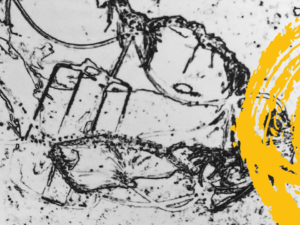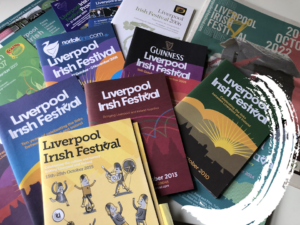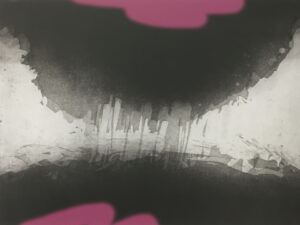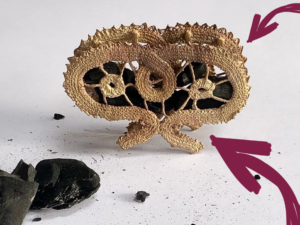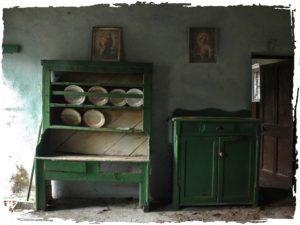
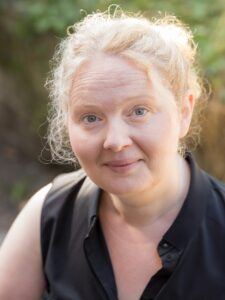 Last year, Catherine Harvey worked with us to explore how Shakespeare handled the Irish. This year, Catherine’s using her skills to take us on a poetry walk through anniversaries, connecting with our Festival theme.
Last year, Catherine Harvey worked with us to explore how Shakespeare handled the Irish. This year, Catherine’s using her skills to take us on a poetry walk through anniversaries, connecting with our Festival theme.
Catherine was series producer of Tongue and Talk: The Dialect Poets on BBC Radio 4, which featured an episode on the poetry and language of Liverpool. Born in Liverpool, Catherine has traced her and her partner’s family ancestry back through Ireland’s history, to make connections with the Treaty, the Civil War and much more besides. She’s worked extensively as an actor, writer and director in TV, film, theatre and radio and is also Visiting Professor of Shakespeare Studies at the University of Niagara.
Poetry: an anniversary collection: article contents
There are so many commemorations this year. So, I hope you’ll forgive me when I say that any poetic offerings suggested here are only the tip of a very large iceberg.
I’d like to start with Where the World Begins[i] by David Ward, which explores the histories held within Liverpool – in the flow of the river and the lives it carries with it. David has long been part of Liverpool’s literary scene, as co-founder of The Windows Project and Smoke Magazine. As his poem suggests, the port’s part in the transatlantic slave trade has brought great prosperity and great pain.
Slavery
It’s 190 years since The Slavery Abolition Act of 1833. In his poem On Exchange Flags[ii], writer and historian Greg Quiery takes us to the square where cotton brokers once conducted their business. (Readers can visit Exchange Flags, located just behind the Town Hall, bordered by Chapel Street, Exchange Street, Dale Street and Rumford Street). Originally from Co. Down, Greg has lived in Liverpool for over 50 years and was a member of the committee that established the Liverpool Irish Famine Trail.
Famine
We’re currently commemorating the 175th anniversary of the 7-year span of the Famine. And, if you only read one poem on the subject, I’d suggest The Great Hunger[iii] by Monaghan-born Patrick Kavanagh (who also penned On Raglan Road). The poem highlights -in stark and moving detail- the painful experiences of farmer Patrick Maguire.
Liverpool’s Irish Famine Trail highlights resonant sites throughout the city. Sites such as Clarence Dock, through which passed 1.3million Irish migrants, between 1845 and 1852, and the Famine Memorial (St Luke’s Church). It also features the grave of Kitty Wilkinson, whose untiring work with the poor led to the establishment of, what is believed to be, the first public washhouse in the world. She’s recalled in Matt Simpson’s Ancestors[iv]. Simpson was from a Liverpool seafaring family himself. Ancestors summons the memory of those swept here, often unwillingly, on the tide. My own poem, Saving the Last Potato[v], was directly inspired by the connection my family has with Clarence Dock, as well as another commemoration: the 70th anniversary of the European Convention of Human Rights, which highlights everyone’s right to safety.
Migration
Liverpool has, for centuries, offered a home to travellers from all over the world. The city famously has the oldest Chinese community in Europe, due in part to The Blue Funnel Line. The company operated merchant ships for 122 years and played a significant role in both world wars. 2023 marks 35 years since its demise. In Mersey River[vi] -a poem through which the shape of the river literally runs- Jennifer Lee Tsai pays tribute to the Chinese sailors who worked for the company, often at great personal cost.
It’s also 75 years since The Empire Windrush landed in Tilbury docks, heralding 20+ years of migration. Heralding the arrival of half-a-million Caribbean people, attracted by Britain’s appeal for skilled workers to help rebuild the country in the wake of World War II. In Anchored[vii], Liverpool poet Levi Tafari shares his parents’ own experience. Read live at this year’s Liverpool Arts and Culture Race Equality Manifesto launch, the complex story of migrants, whether invited or enforced, is brilliantly articulated.
Nobel Prizes
Liverpool is a literary city. It’s full of stories, music and verse. The Irish poet and playwright W.B. Yeats was no stranger, frequently passing through the port en route to his mother’s native Sligo. And there must have been great celebration when, a hundred years ago, he became the first Irishman to win the Nobel Prize for Literature.
In 1923, Ireland was emerging from a long period of conflict. Yeats became a senator in the first Seanad Éireann, and the Nobel Committee made special mention of ‘his always inspired poetry, which in a highly artistic form gives expression to the spirit of a whole nation.’ There are so many wonderful Yeats poems that express that spirit but, since we’re currently commemorating the centenary of the end of the Irish Civil War, I’d suggest looking at The Stare’s Nest by My Window[viii], which has since provided inspiration for many other writers. ‘Stare’ is a dialect word for a starling, and –as Seamus Heaney mentioned over 70-years later in his own Nobel acceptance speech– the poem explores the need on one hand for hardness and retribution while, on the other, a desire to hold onto sweetness and trust.
Politics
Poets have long played a role in political life. We’re now 25-years on from The Good Friday Agreement… and you may remember President Clinton quoting The Cure at Troy during his 1995 visit to Ireland; forever weaving Heaney’s words into the fabric of the peace process:
…once in a lifetime
The longed-for tidal wave
Of justice can rise up…
Rights and Freedoms
In 2023 we celebrate another literary anniversary: 125-years since the publication of Oscar Wilde’s The Ballad of Reading Gaol[ix]. Written after his 2-year prison sentence, for what was then dubbed ‘gross indecency’ with men, it explores the nature of wrong and the shared suffering convicts face. It’s now 20-years since the repeal of Section 28, which sought to prohibit ‘the promotion of homosexuality’ and, no less significantly, 10-years since same-sex marriage was legalised in Britain. It goes without saying that many of our greatest works of literature might have fallen within the remit of Section 28, not least huge swathes of Shakespeare, including a large proportion of his sonnets, written to the mysterious ‘fair youth’ he called ‘the master-mistress of my passion.’
Sport
I’d like to end by talking about football. It’s a subject that’s close to the hearts of many in Liverpool and, if you’re one of them, you may know that 2023 marks 145-years since the founding of Everton FC as St Domingo’s FC. This club split 14 years later to form the splinter club we now know as Liverpool FC. In Footy Poem[x], Roger McGough explores -with his usual humour- the fractured loyalties this split still causes today.
And, finally, I’d like to pause to reflect on all of this year’s anniversaries as we return to the football field with Paul Farley’s A Minute’s Silence[xi].
Poems
[i] Where the World Begins
Dave Ward, from On the Edge of Rain (2008).
This is where the world begins.
This is where the river ends.
The sea beyond the sea.
The sea beyond the sea.
The city’s dark manacles hold us here,
the sailors who never put to sea,
delving out treasure
from the depths of sunless holds.
Dock walls like fortresses
. hoarding the grain,
. . hoarding the sugar,
. . . hoarding the pain.
Smell of diesel,
. smell of sea,
. . smell of burgers,
. . . coffee and grease.
Suck of the estuary,
. suck of the sea,
. . suck of the city inside.
[ii] On Exchange Flags
Greg Quiery. On Exchange Flags was published by the Festival on 15 Oct 2020 (written Aug 2018), here: https://www.liverpoolirishfestival.com/on-exchange-flags/
[iii] The Great Hunger
Patrick Kavanagh, can be read in full, here: https://allpoetry.com/the-great-hunger. On Raglan Road is also available: https://allpoetry.com/On-Raglan-Road
[iv] Ancestors
Matt Simpson, is available to read on pages 66-67 of Getting Here (1995), Liverpool University Press. His reference to Kitty reads:
If there’s a heaven, then Kitty Wilkinson’s
among the meek turning a squeaky mangle
like a barrel organ there.
[v] Saving the last potato
Catherine Harvey.
Wrapped in a blanket
I sit on the warming rug
It’s distinctive firelit smell
Still hot in memory.
I love this –
Bacon and eggs
Roast potatoes –
We always leave the last one in the dish
In case of unexpected visitors –
Someone in need my granny says
Someone who might be hungry.
This is my home
My family
Our eyes fixed on the last potato
Glowing in the firelight –
Safe in my granny’s front room –
The nightmare creatures chased away
Like shadows behind open doors.
Sanctuary.
The wind and waves now long ago
That carried my gene pool –
Hers –
Starving, terrified across the sea
To a land that promised
An end to hunger
An end to fear.
Today as I walk along the waterfront
Modernized with money
I notice a plaque marking their entry –
Thousands of faces peering out of faded photos –
Any one of them could be related –
Leaping the wall that bound the water’s edge
To reach the home
The family I take for granted
And the last potato
Glowing warm in firelight –
A privilege
A human right.
Perhaps we never know what safety is
Until it’s lost.
[vi] Mersey River
Jennifer Lee Tsai, from her pamphlet Kismet (2019):
| Listen I hear your song the river flows the sea’s operatic language A geography of otherness becomes me clasping mementoes a Chinese passport Funnel Linegrandmother’s jade pendant Blemished sea shapes twist and untwist the coastline breaking stabilities like phonetic entities through the murky field Listen I do not want the city or the other sailors |
Some shattering in the void of my form |
[vii] Anchored
Levi Tafari. If you have a BBC licence, you can listen to Levi recite Anchored (2023), here: https://www.bbc.co.uk/sounds/play/p0fwftl8
[viii] The Stare’s Nest by My Window
W B Yeats, is Part IV of Meditations in a Time of Civil War, published in The Tower (1928), which can be read in full: https://www.poetryascommemoration.ie/poems/meditations-in-time-of-civil-war-by-w-b-yeats/
[ix] The Ballad of Reading Gaol
(1898), Oscar Wilde. The poem can be read here: https://www.poetryfoundation.org/poems/45495/the-ballad-of-reading-gaol
[x] Footy Poem
Roger McGough. Watch Dan Ryan (Dublin) read the poem: https://www.youtube.com/watch?v=CUGtXPX0eL4
[xi] A Minute’s Silence
(1998), Paul Farley, was published in The Boy From the Chemist is Here to See You. Read the poem here: https://www.poetrybyheart.org.uk/poems/a-minutes-silence
Image credit: Old House, Kerry (c) Kieran Murray, May 2006


